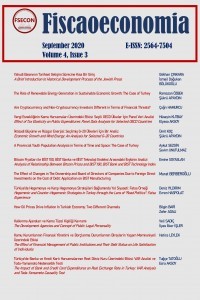
Fiscaoeconomia
Yazarlar: Onur SUNAL
Konular:İşletme
DOI:10.25295/fsecon.2020.01.011
Anahtar Kelimeler:Short Term Interest Rates,Central Banks,Error Correction Model,Pass Through Effect,Market Interest Rates
Özet: Short term interest rates are one of the most influential monetary policy tools for contemporary central banks. More often they are used to prompt the monetary transmission mechanism either to avoid recessions or to control the rising prices via affecting the market interest rates. The main aim of this study is to investigate the relationships among short term and other types of market interest rates in Turkey. Monthly data on short term interest rates set by the Turkish Central Bank, benchmark market interest rates on Turkish 2 year Treasury Bonds and bank lending and bank deposit rates are used in this study covering the period between 2012(M06) and 2019(M09). The relationships between the variables are investigated by adopting co-integration and error correction models. The results revealed that there is a strong significant co-movement between short term and other market interest rates. As the findings of error correction models revelaed a percent change in short term rates are accompanied by a 0.86 percent change in lending and 0.76 percent change in deposit rates.